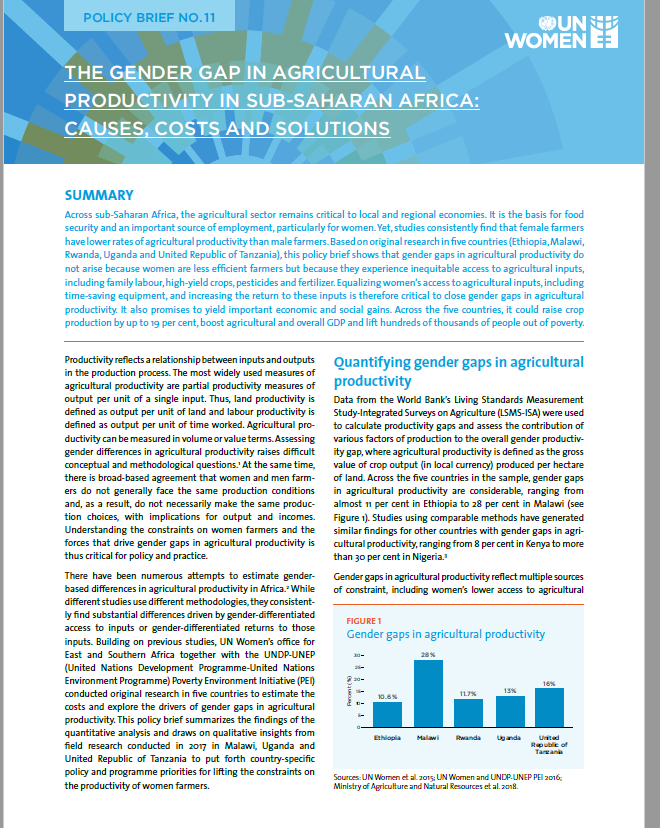
THE GENDER GAP IN AGRICULTURAL PRODUCTIVITY IN SUB-SAHARAN AFRICA: CAUSES, COSTS AND SOLUTIONS

Across sub-Saharan Africa, the agricultural sector remains critical to local and regional economies. It is the basis for food security and an important source of employment, particularly for women. Yet, studies consistently find that female farmers have lower rates of agricultural productivity than male farmers. Based on original research in five countries (Ethiopia, Malawi, Rwanda, Uganda and United Republic of Tanzania), this policy brief shows that gender gaps in agricultural productivity do not arise because women are less efficient farmers but because they experience inequitable access to agricultural inputs, including family labour, high-yield crops, pesticides and fertilizer. Equalizing women’s access to agricultural inputs, including time-saving equipment, and increasing the return to these inputs is therefore critical to close gender gaps in agricultural productivity. It also promises to yield important economic and social gains. Across the five countries, it could raise crop production by up to 19 per cent, boost agricultural and overall GDP and lift hundreds of thousands of people out of poverty.